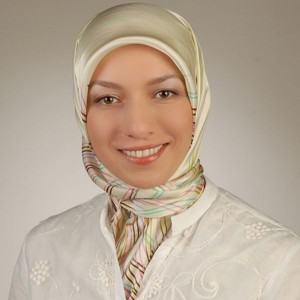What we celebrate and why: The blessed month of Ramadān
A contribution from Dr. Ayşe Başol, religious leader in our seminar programme
In the evening of the second day of our Spring Seminar 2021 our three religious advisors gave a joint lecture on the importance of hope and confidence in uncertain times of crises. They based their inputs on the upcoming Jewish, Christian and Muslim holidays as (re)sources for drawing said confidence despite and especially in the middle of collective crises. Dr. Ayşe Başol spoke about Ramadān, Rabbi Maximilian Feldhake explained the meaning and rituals of Pessach and Dr. Kerstin Söderblom told us about Lent and Easter.
We are happy to share Dr. Ayşe Başol`s contribution on the blessed month of Ramadān.
If you have any questions or remarks, as always, do not hesitate to get in touch.
Ramadān Kareem to all of our Muslim participants, alumni, network-partner and friends!
The blessed month of Ramadān
In the Islamic calendar, there are two time periods that form a culmination in the religious life of Muslims:
- The Blessed Three Months: Radjab, Sha’bān and Ramadān. The Ramadān festival hereby marks the end of this period.
- The Pilgrimage to Mecca and Medina in the month of Dhu l-Hijjah, ending with the celebration of the Feast of Sacrifice.
At this point in time, we are entering the blessed month of Ramadān that according to the Gregorian Calendar begins on April 13th. The month of Ramadān, however, is preceded by two other months that are of great importance to the Muslim community: Radjab and Sha’bān. A memory aid that helps to remember the three months and their meaning is: Radjab is the month of God, Sha’bān is the month of the Prophet Muhammad and Ramadan is the month of the Muslim community. For the duration of the month of the Muslim community, fasting is imposed as a ritual duty. The month will end with a three-day festival.
The obligation to fast is prescribed in the Qur’ān in Surah 2 verses 183-185:
O you who believe! Fasting is prescribed for you, as it was prescribed for those before you. So that you might be wary of God(183).
The days are limited. And whoever of you falls ill or is on journey on these days should made up for the missed days. And those who are overwhelmed (by fasting): a ransom (for the missed days) of the (daily) food costs of a person in need. But those who willingly want to do more will benefit more. Still, it is better for you to fast, if you only knew (184).
Ramadān is the month in which the Qur’ān was revealed. It is a guidance for mankind and (contains) explanations that guide and distinguish (right from wrong). Whoever of you reaches this month should fast in it. Anyone who is sick or on journey should be made up the missed days later. God wants to make it easier for you and not to make it difficult. Therefore, complete the days (of fasting) and glorify God as he guided you, so that you may be grateful to Him (185).
The act of fasting is of great importance, because as a matter of fact it is a religious obligation that exists between the fasting person and God only. In its practice fasting functions like a covenant between every individual person and God: a covenant that is renewed daily by both the declaration of intention (niyya) and it`s implementation based on conscience by the person. Only they themselves know whether he or she is fasting. It cannot be seen from outside if someone is fasting. Therefore, fasting is a religious duty that requires conscious choosing (to do so) and gives a personal touch to the individual`s relationship with God.
Ramadān is essentially characterized by its communal character. In the morning many Muslims around the world are going to get up before sunrise and eat something. Then, at the dawn of the day they’ll pronounce the intention (niyya) that they’ll fast. Until before sunset they’ll abstain from pleasure (food, drinks, smoking or even sexual intercourse). The abstinence ends with the sunset. Everything is then allowed again until the sun rises.
In other words: Muslims are now in one of the most blessed and reflective times of the Islamic year cycle. This time is full of confidence and hope. Hardly anyone in Europe really notices it because Muslim life is barely visible – even less so now while the COVID-19 pandemic. In recent years, public events such as breaking the fast together have given Ramadān more visibility outside the Muslim community. Due to COVID-19 this opportunity is currently fallow.
Ramadān is experienced and lived out intensely by believers. For example, the Qur’ān is recited more often than usual. Many read it completely at least once this month, either in a group setting or privately. As the Qur’ān is divided into 30 sections of 20 pages and the month of fasting lasts about 30 days, in some mosques the Qur’ān is recited regularly after night prayer, during the Tarāwih-Prayer.
While the month of Ramaḍān “the night of destiny” (laylat al-qadr) is celebrated. It marks the very night the Prophet had received the first revelation. The tricky part is that nobody really knows which night exactly to observe. The prophet is reported to have said: “Look for them in the odd nights of the last ten”. The recommondation therefore is to spend the evenings of the odd days of the last 10 days, i.e. the 21st, 23rd, 25th, 27th and 29th, in prayer, hoping not to miss the actual night.
In many places in Turkey, it is traditional to begin and end the month of Ramaḍān in and out with the sound of a cannon fire. Also, the beginning and end of each the fasting period fastening is accompanied with sound: every morning the Ramadān drummers go out before sunrise and wake people with special melodies so they will have time to eat a kind of breakfast that takes place early in the morning while being half asleep before the fast starts. As soon as the first sunlight appears, the cannon and the call to prayer announce the beginning of the fast for that day.
Apart from that, daily life doesn’t really change. Many people keep going to work, the shops are open. But there is a cheerful mood in the air: everyone is looking forward to the evening, to dinner. The breaking of the fast is also rung in every night at sunset with cannon fire, which is again followed by the call to prayer.
Ramadān is celebrated not only through fasting and special foods, but also through prayers that go beyond the requested prayers. Requests and wishes are expressed, repentance is given and forgiveness is asked for. Aid actions are more common on these days. Women and men go to the mosque every night, because after the ritual prayer the specific Tarāwih-Prayer is prayed. There are many believers who, in order to receive Ramadān with joy, start fasting at the beginning of the three months. Some fast the full three months, some only on Mondays and Thursdays, following what the Prophet has done. Relatives are invited to break the fast. Some dishes are only available in times of Ramadān.
The three months, but especially the Ramadān, lead to an extraordinary mood. People, regardless of whether they actively commit or not, experience their worries and hardships, joys and happiness differently. By “actively committing” I actually refer to all who live Ramadan. Whether they fast or not, whether they go to the mosque or not, whether they invite people to break the fast or not, whether they donate or not, etc. It doesn’t matter. Time creates a mood that grabs and sustains people.
The highlight is of course the festival in the end of the month. It lasts for three days. This time is dedicated to mutual visits. However, the festive season indicates that the hustle and bustle will now be downgraded a few gears. Also a slight sadness makes itself felt: the uncertainty as to whether it will be possible for everyone to welcome the Blessed Months and Ramadān again next year.
I wish all Muslims a blessed Ramadān and a merry feast! May God hear your requests and prayers and accept your benefits.

